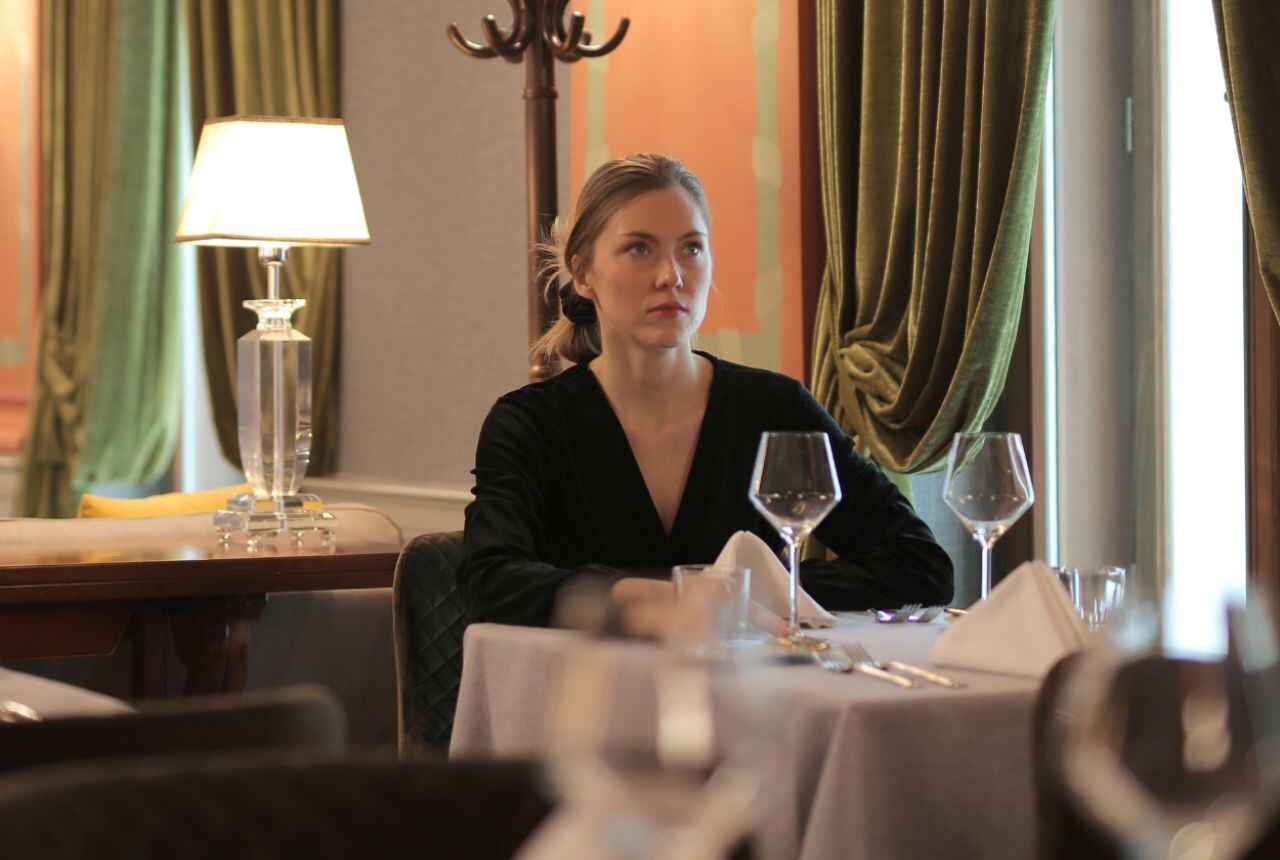Imagine you walk into a lively café or attend a buzzing party, and within minutes, you’re scanning the room for a quiet corner.
While others revel in the noise and excitement, you’re perfectly content observing from the sidelines, soaking in the ambiance without feeling the need to dive into every conversation.
If this sound familiar you’re likely an introvert, and you’re not alone.
We introverts are often misunderstood in a world that celebrates extroversion.
People do label us as shy, aloof, or even antisocial, but the reality is far more nuanced.
Introversion is not about disliking people or avoiding social interactions; it’s about how you engage with the world and recharge your mental and emotional energy.
As someone who identifies as an introvert, I’ve come to appreciate the unique strengths that come with this personality trait.
We are deep thinkers, empathetic listeners, and keen observers. We thrive on meaningful connections and possess an inner richness that often goes unnoticed in the hustle and bustle of daily life.
In this blog post, we’ll dive deep into ten behaviors that introverts often exhibit in public.
These aren’t just quirks or habits; they’re intrinsic aspects of what makes you, you.
Let’s explore these signs, offering a more profound understanding of introversion and why it’s something to be celebrated.
1. You’d Rather Listen Than Talk
One of the defining characteristics of introverts is their exceptional listening skills.
In any social setting, introverts often gravitate toward listening rather than leading the conversation.
This doesn’t mean they have nothing to say.
On the contrary, introverts typically have well-thought-out opinions and ideas.
Get Smarter Everyday Join Us On WhatsApp
However, they prefer to fully understand the context before sharing their thoughts.
I remember attending a networking event where the extroverts in the room dominated the conversations with ease.
Meanwhile, I found myself listening intently, nodding, and asking thoughtful questions.
By the end of the evening, a few people approached me to thank me for being such a good listener.
They appreciated the fact that I wasn’t just waiting for my turn to talk—I was genuinely engaged.
If you’re someone who enjoys listening more than speaking, this isn’t a weakness.
Think about those moments when someone shares something deeply personal.
Your ability to listen without interrupting makes you a trusted confidant.
Instead of dominating the conversation, you provide a space where others feel safe and understood.
That’s not just a sign of introversion—it’s a sign of empathy and respect.
Your ability to provide a safe space for others to share is a rare and valuable trait.
2. Crowded Places Feel Overwhelming
Crowded environments can be exhilarating for some but utterly exhausting for introverts.
The constant buzz of conversations, the jostling of people, and the overwhelming sensory input can quickly drain your energy.
Imagine you’re at a packed concert, and while your friends are lost in the music, you’re hyper-aware of the jostling bodies, the booming bass, and the myriad conversations around you.
Get Smarter Everyday Join Us On WhatsApp
It’s not that you don’t enjoy the event, but the sheer volume of external stimuli can feel draining.
I’ll never forget the time I attended a massive music festival.
My friends were thrilled by the energetic atmosphere, but for me, the sheer volume of noise and the endless sea of people felt suffocating.
By the second hour, I was searching for a quieter spot where I could still enjoy the music but without the chaos.
This isn’t about disliking people or events.
Introverts are simply more sensitive to external stimuli.
Research even shows that introverts process sensory input differently, leading to a heightened awareness of their surroundings.
If you often find yourself retreating to quieter corners or feeling the need to leave crowded places early, it’s a natural response to your environment.
You’re not being antisocial; you’re honoring your need for balance and calm.
So embrace it, and don’t hesitate to prioritize your comfort in such situations.
3. You Appreciate Alone Time
For introverts, alone time is like recharging a battery. It’s essential for mental clarity, emotional well-being, and overall energy levels.
After spending time in social settings, whether it’s a family gathering or a work event, you probably find yourself longing for some solitude.
Personally, some of my most creative and productive moments occur when I’m alone.
It’s during these times that I can reflect, process my thoughts, and engage in activities that truly energize me, like reading, writing, or simply sitting in silence.
This craving for solitude isn’t a sign of isolation but rather a testament to how your brain functions.
Get Smarter Everyday Join Us On WhatsApp
Studies suggest that introverts have more blood flow to the frontal lobe, the area of the brain associated with deep thinking and problem-solving.
This heightened activity makes introspection not just enjoyable but necessary.
If you’re someone who cherishes your alone time, consider it a vital part of your self-care routine.
It’s in these quiet moments that you can truly connect with yourself and recharge for the next social interaction.
4. Small Talk Isn’t Your Thing
Let’s face it: small talk can feel like an exercise in futility for introverts.
While it serves as a social lubricant for many, introverts often find it draining and unfulfilling.
Conversations about the weather or the latest celebrity gossip don’t hold your attention for long.
I’ve often found myself in situations where small talk feels like a necessary evil. But when the conversation shifts to more profound topics—like personal values, life goals, or even philosophical questions—I come alive.
Think about your own experiences. Have you ever found yourself genuinely lighting up during a deep conversation while feeling drained by idle chatter?
That’s your introverted nature seeking meaningful connections.
Introverts crave depth and substance in their interactions. This preference isn’t about being rude or disinterested.
It’s about valuing quality over quantity in communication.
If you find yourself steering conversations toward more meaningful topics or simply avoiding small talk altogether, you’re embracing your introverted nature. And that’s perfectly okay.
5. You Enjoy Observing
Introverts are natural observers, they often have a keen eye for detail, preferring to observe and analyze before jumping into social interactions.
Get Smarter Everyday Join Us On WhatsApp
In public settings, you might find yourself quietly watching the dynamics of a room, picking up on subtle social cues that others might miss.
This habit of observation allows you to understand people and situations on a deeper level.
I once attended a wedding where, instead of diving into conversations, I spent time observing the interactions around me.
I noticed the nervous groom adjusting his tie, the proud parents beaming with joy, and the shy child hiding behind her mother.
These small details gave me a richer understanding of the event’s emotional tapestry.
For introverts, observing is not a passive activity—it’s a way of actively engaging with the world.
You’re gathering insights and forming connections in your mind, even if you’re not speaking.
This makes you a keen and insightful participant in any social setting.
6. You Value Your Close Relationships
Introverts often prefer a smaller circle of close, meaningful relationships over a large network of acquaintances.
You might not be the life of the party, but the relationships you do have are deep, authentic, and built on mutual trust.
In my own life, I’ve found that my closest friendships are those where we can spend hours in comfortable silence or dive into profound conversations without skipping a beat.
These connections don’t require constant upkeep because they’re grounded in genuine understanding.
If you’re an introvert, you likely prioritize quality over quantity when it comes to friendships.
And that’s a beautiful thing. It means you invest deeply in the people who truly matter to you, creating bonds that are both lasting and fulfilling.
7. You Need Time to Recharge
Social interactions, even enjoyable ones, can be exhausting for introverts.
Get Smarter Everyday Join Us On WhatsApp
After a day of meetings, parties, or family gatherings, you might feel completely drained and in need of some alone time to recharge.
I recall a weekend where I attended multiple social events back-to-back. By Sunday evening, I was physically and mentally exhausted.
It wasn’t that I didn’t have fun—I simply needed time to recover from the intense social stimulation.
If you resonate with this, know that it’s perfectly normal.
Taking time to recharge isn’t about avoiding people; it’s about maintaining your emotional and mental well-being.
By allowing yourself this time, you’re better equipped to engage meaningfully when you do interact with others.
8. You’re Often Mistaken for Being Aloof or Distant
Introverts are sometimes perceived as distant or aloof, especially in group settings where they’re more reserved.
This misconception often arises because introverts process thoughts internally and may not always express their engagement outwardly.
I’ve been told on more than one occasion that I seem “quiet” or “uninterested” in social situations.
The truth is, I’m often deeply engaged—just not in a way that’s immediately visible to others.
If you’ve experienced this, remember that it’s a matter of perception.
Your quiet demeanor doesn’t reflect a lack of interest or enthusiasm; it’s simply a different way of engaging with the world.
9. You Prefer One-on-One Interactions to Group Settings
Given the choice between a large social gathering and a one-on-one conversation, most introverts will choose the latter.
Smaller, more intimate settings allow for deeper connections and meaningful dialogue, which are far more fulfilling for introverts.
Get Smarter Everyday Join Us On WhatsApp
I’ve always preferred catching up with a friend over coffee rather than attending large parties.
In these one-on-one settings, I feel more comfortable and can engage in the kind of thoughtful conversations that I enjoy.
If you’re an introvert, this preference for smaller interactions is a reflection of your desire for depth and authenticity in your relationships.
Embrace it—it’s a key aspect of your personality.
10. You’re Comfortable with Who You Are
At the heart of it, introverts are comfortable in their own skin.
You’ve learned to embrace your need for solitude, your preference for deep conversations, and your unique way of engaging with the world.
Being introverted is not a flaw or something that needs to be changed. It’s a strength that brings depth, thoughtfulness, and empathy to your interactions.
If you’ve ever felt pressured to be more outgoing or social, remember that the world needs introverts just as much as it needs extroverts.
Your quiet strength and thoughtful nature are valuable assets, both in your personal life and in the broader social fabric.
Conclusion
Introversion is a powerful and often misunderstood trait.
By recognizing and embracing these ten signs, you’re not only acknowledging your introverted nature but also celebrating the unique strengths that come with it.
In a world that often values extroversion, your quiet presence and thoughtful engagement offer a refreshing and much-needed perspective.
If you found this blog post insightful be sure to share it with those out there that are still not aware of it Don't forget to FOLLOW US on Facebook and hit the LIKE button for more new content. Thanks so much for reading.....









